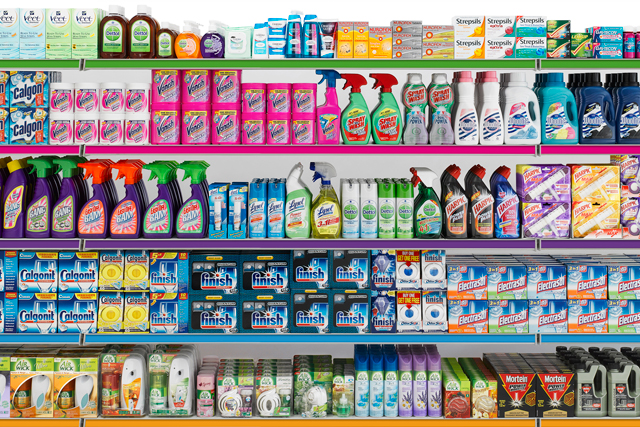
The company said it had reduced its footprint by 21% since 2007, after having originally committing to a target of 20% by 2020.
Sustainability has become a key battleground between large corporations, as they look to outdo each other with their environmental credentials.
RB's new "betterbusiness" strategy builds on its Carbon20 commitment and has set itself a handful of lofty targets.
It aims to reduce its carbon footprint per dose by a third across a product's lifecycle; to reduce the water impact per product across its lifecycle by a third, and to create a third of the company's total net revenue from sustainable products, by 2020.
RB said it will achieve this through product innovation, sustainable operations and by enabling consumer action.
The company said it is focusing on reducing its water impact because by 2025, 64% of the world's population will live in areas with significant water shortages, while 15% of RB's powerbrands contain water, and approximately half of those products need water for use, and all of them need water to produce.
In addition, it is concentrating on female consumers because they are "central" to RB's business purpose of "healthier lives and happier homes", as women make up the majority of RB’s consumers.
As part of RB's sustainability update, it has joined The Sustainability Consortium, the independent organisation of global bodies that aims to drive innovation to improve consumer product sustainability through scientific research.
In addition, RB is in conversations with WWF, the international conservation organisation, in order to find a new way for the industry to measure water impact.
Finally, RB is extending its partnership with global charity Save the Children to become the organisation’s biggest global partner. RB has previously raised £8m for the charity.
Rakesh Kapoor, RB's chief executive, said: "Sustainability is integral to our business purpose. We will only succeed by responding to global challenges, improving the health and hygiene options for women and their families with more sustainable products.
"We will do it through innovating for better design, better production and better consumer choices."



.jpg)
.jpeg)
